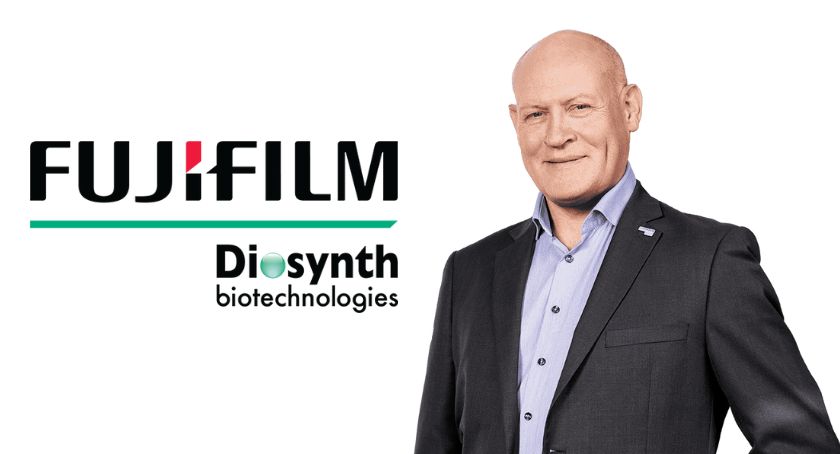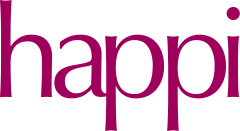DCAT Week
DCAT Week: Interview with Lars Petersen
Lars Petersen, President & CEO of Fujifilm Diosynth Biotechnologies, discusses supply chain agility, ‘partners for life,’ KojoX and more.

Lars Petersen.
DCAT Week, the global event held annually in New York City, caters to companies engaged in the bio/pharmaceutical manufacturing supply chain. It’s hosted by the Drug, Chemical & Associated Technologies Association (DCAT), a not-for-profit, member-supported, global business development association.
On the third day of the event, I met with Lars Petersen, President and CEO of Fujifilm Diosynth Biotechnologies, a CDMO partner for the development and production of biological drugs, vaccines, and advanced therapies.
2025 may be the biggest year yet for the company’s expansion. In recent years, the company has announced $8.6 billion in investments, and they’re not slowing down. They plan to put out a new facility every year for the next four years straight—a total investment of $9 billion. Most recently, the company completed a production expansion in Denmark, increasing capacity from 6 to twelve bioreactors for mammalian cell culture, making the site the largest end-to-end biopharmaceutical manufacturing site in Europe.
I spoke with Petersen about his impressions of DCAT Week, Fujifilm Diosynth Biotechnologies’ KojoX philosophy, supply chain agility, acquiring talent, and more.
Impressions of DCAT Week
According to Petersen, there has been a positive transformation in how people perceive Fujifilm Diosynth Biotechnologies—and it can be felt at DCAT Week.
“I believe people have seen and now understand that Fujifilm Diosynth Biotechnologies’ strategy, ‘partners for life,’ is really a unique partnering opportunity,” he says. “We don’t have to explain it as much anymore. People in the industry know we come with a completely different way of doing things.”
Through its partnership model, Fujifilm Diosynth works alongside its customers as consultative experts to help them achieve their vision for their molecules. Rather than merely doing a task, the company strives to work in tandem with customers to determine which pathway best suits their programs and portfolios.
KojoX
As Fujifilm Diosynth Biotechnologies expands around the globe—from Holly Springs, North Carolina and Thousand Oaks, California, to Hillerod, Denmark and Toyama, Japan—KojoX is the philosophy behind the transformation.
“KojoX is our innovative approach to the design and build of a modular, agile bioproduction network that enables scale, speed and resilient supply chain assurance so that biopharma customers can deliver life-changing medicines to patients faster,” says Petersen.
Fujifilm Diosynth Biotechnologies’ global network is built with a harmonized design of production facilities equipment, processes, and quality systems, which enables validated drug substance API processes to transfer to new, equivalent production lines within the network – delivering scalability and faster technology transfers for customers and a more sustainable production process for the environment.
Petersen says the modular approach is not new—the automotive and semiconductor industries have already done this for years. But he claims nobody in the bio/pharmaceutical industry has done it yet.
“If you go in and you look at Volkswagen, most Volkswagens, whether they’re a Skoda or a Porsche or an Audi, they’re built on the same platform. That’s basically what we’re doing with KojoX.”
KojoX transforms the CDMO space by offering agility, flexibility, and replicability. With a fully integrated global network, Fujifilm Diosynth ensures its partners have access to a network of possibilities, from early development to scalable commercialization. KojoX enables Fujifilm Diosynth to meet capacity demands seamlessly, shortening tech transfers and regulatory processes and enabling partners to bring medicines to patients faster and more efficiently while providing supply chain agility and security of supply.
Petersen likens the modular approach to the Apple way of doing things.
“The iPhone is a good example. I got the very first one in 2007 when I lived in San Francisco. Today, it’s basically the same phone because they created a platform, and then they said, what varies over generations? Of course, sometimes they make a bigger generation, and they say, ‘Oh, now we have run into something,’ but that’s basically the same as what we do. We create a platform, and within the platform, we can vary details inside each of these modules. Of course, we may reach a time, maybe five years out, where a very big lead changes technology, and then we may need to move to a new variation, just like you see with the iPhone.”
Supply Chain Agility
Like most CDMOs, Fujifilm Diosynth faced significant supply chain challenges during COVID, but they found a way through it.
“We are, from a manufacturing point of view, building more than any other CDMO, maybe any other company right now. The biggest challenge in terms of the supply chain has been how hot the market is, and how much insourcing is happening in the U.S. because of the Chip Act and the Inflation Reduction Act,” says Petersen. “Those factors have been tough, but we have very strong strategic partnerships with engineering and constructing companies. I think we learned during COVID and are in a better situation right now than ever before. So, I would say in terms of the supply chain, we’ve worked out in a very, very good way and are more efficient than most other companies.”
Work Culture
With Fujifilm Diosynth expanding on so many fronts around the globe, cultivating a robust workforce is paramount.
“When it comes to hiring, we are much more focused on the right attitude, the right people, and the right culture,” says Petersen. “We believe it’s better to educate people in competencies and provide them experience over time rather than hiring based on experience alone.”
“The reason for this is that our culture and the way we brand our culture is a significant attraction point to people. People want to work in a great place. By providing a unique, meaningful, and happy work culture, we attract people who provide much better value,” he explains.
Even in North Carolina, where there’s so much competition and demand for people, Petersen says less than 5% of people who come in for an interview turn the job down.
Demand
“We definitely see a difference in demand for advanced therapies, like CGT, and early-stage microbial programs, and then commercial or late-stage commercial manufacturing,” Lars explains.
CGT programs face challenges stemming from reduced investment due to high costs and shifting investor sentiment, exacerbated by the complex and expensive nature of advanced therapies. Increased competition in small-scale manufacturing further complicates this landscape.
Conversely, late-stage and commercial manufacturing are experiencing robust demand, driven by market growth and limited competition due to the substantial investment required for large-scale facilities.
One of Fujifilm Diosynth’s key strengths is the ability to ensure seamless continuity between early and late-stage manufacturing, mitigating risks for both small biotechs concerned with survival and large pharmaceutical companies focused on financial management. This continuity streamlines transitions, reduces time and complexity, and fosters stronger partnerships, addressing the inherent uncertainties associated with scaling production.
Looking to the Future
Petersen envisions Fujifilm Diosynth Biotechnologies becoming the “TSMC of the biopharmaceutical industry,” a trusted and transparent partner that eliminates the need for large pharmaceutical companies to maintain extensive in-house manufacturing capacity.
He aims to create a network so reliable and flexible that major pharma companies will confidently outsource their production, allowing them to focus on R&D. The “partners for life” strategy emphasizes building long-term, trustworthy relationships, positioning Fujifilm Diosynth as an extension of their clients’ operations.
To achieve this, Petersen is focusing on demonstrating the company’s reliability and transparency. He’s also leveraging Fujifilm’s Japanese heritage to bridge the gap between Japanese and Western biopharmaceutical markets, exemplified by the Toyama facility, which is being integrated into their global network. This facility, with Japanese government investment, will serve as a key hub for Japanese clients and strengthen their ability to connect with the Western industry.
Ultimately, Petersen believes that by transforming the industry’s approach to manufacturing, Fujifilm Diosynth can significantly improve drug development and delivery to patients.



